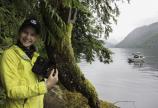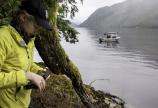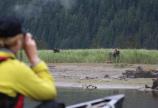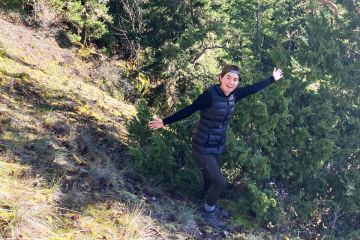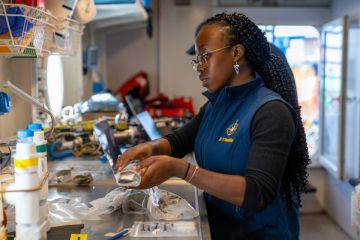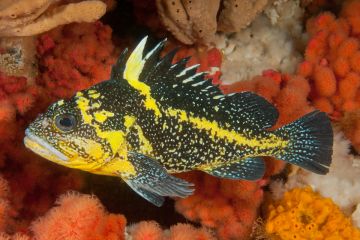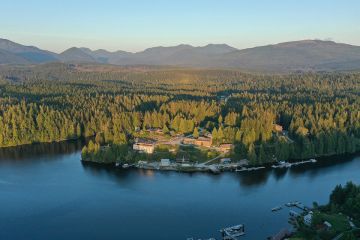Strategic Framework funding expands hands-on learning opportunities for students and employers
- Joy Poliquin
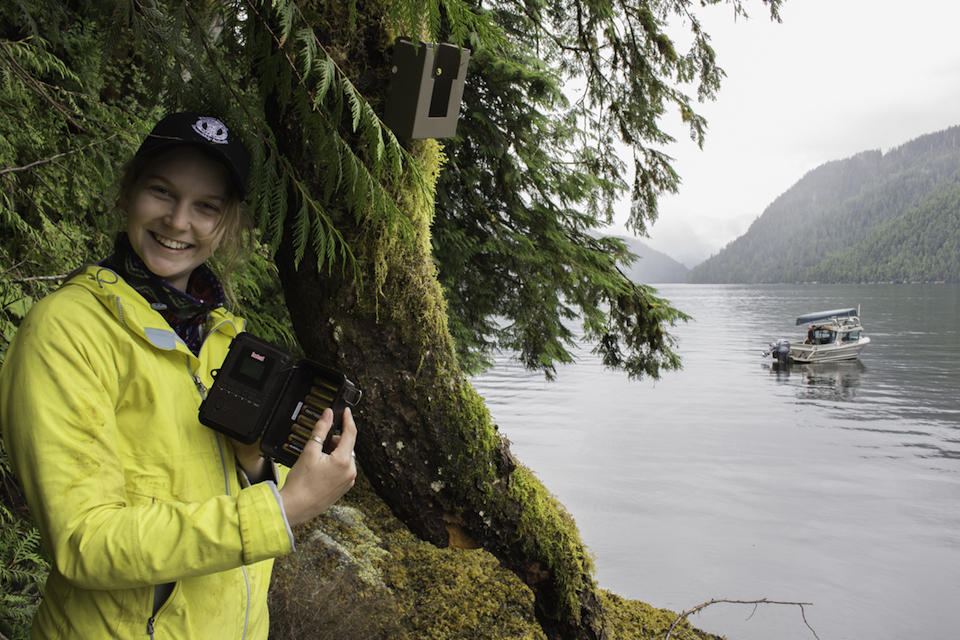
Bryn Armstrong’s co-op office is different than most—she’s spending the fall keeping an eye on grizzly bears and other large carnivores in the Great Bear Rainforest.
As a wildlife biologist intern with Raincoast Conservation Foundation, this biology co-operative education student is putting her degree into action. She spends some days in the field near Klemtu, the village of the Kitasoo/Xai’xais Nation, where she checks remote cameras that are monitoring large carnivore activity and vessel traffic in the area. Other days she works in the Victoria office, using data from these cameras to inform ecotourism management plans for the area.
Bryn, whose heritage is Scottish and Norwegian and who was raised in Ontario and France, is also working closely with members of the Kitasoo/Xai’xais Nation. One of her projects has been to transcribe traditional ecological knowledge interviews on c̓áq (mountain goat) conservation.
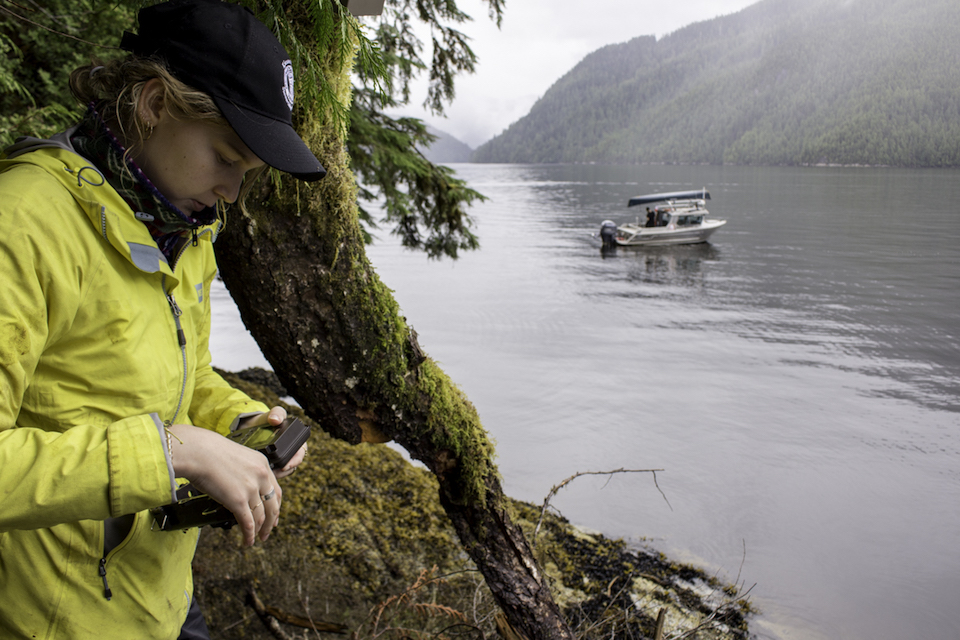
“I have been humbled to be able to spend time in Klemtu with so many amazing people through this co-op experience,” says Armstrong. “Getting out and doing hands-on work makes all of my school work worth it. It makes sense when the learning is contextualized in real-life conservation initiatives.”
Armstrong’s supervisor Christina Service is a wildlife biologist with Raincoast, an environmental non-profit that operates a research lab in Victoria as well as conducting research with partners in Klemtu. The foundation works to protect marine and rainforest habitat on BC’s coast.
Service was able to hire Armstrong through UVic’s new Strategic Framework Experiential Learning Fund, which includes funding that helps non-profit co-op employers hire co-op students.
“As a small non-profit, this funding has enabled us to keep Bryn on for a second term,” says Service. “This has allowed us to further advance our large carnivore project and has also deepened our partnership with the Kitasoo/Xai’xais First Nation. Hiring Bryn has been a tremendous gift—it’s rewarding to see Bryn broaden her understanding of applied biology and expand her competencies by working on conservation issues in a cross-cultural context.”
For Armstrong, this opportunity has been life-changing. “This job has solidified my plan of being a biologist and working in conservation,” she says. “It’s meant a lot to have had this experience.”
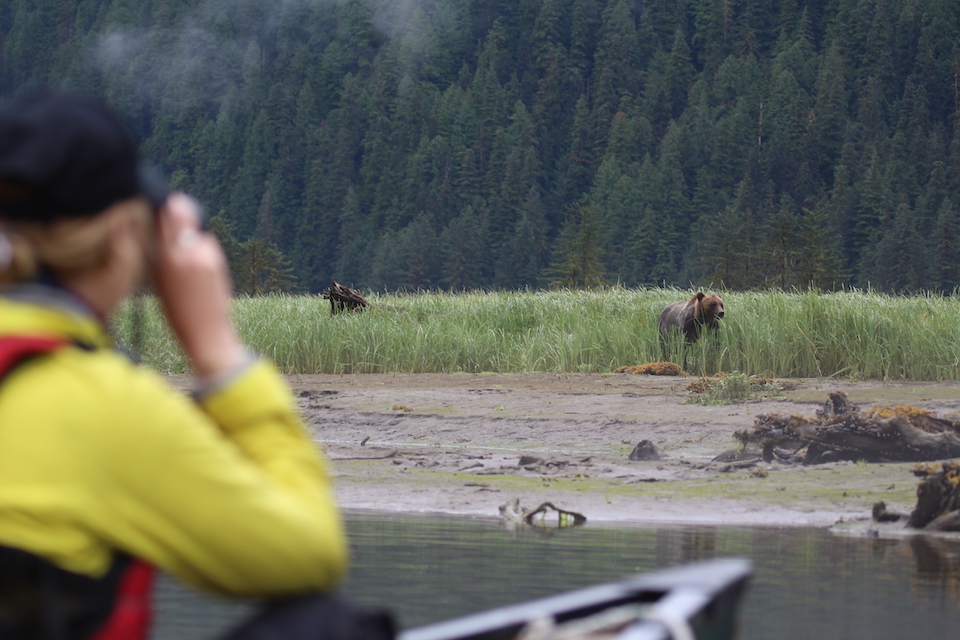
UVic’s Strategic Framework Experiential Learning Fund, launched in spring 2019 through the Office of the Vice President Academic and Provost, aims to increase opportunities for students to gain hands-on learning in the community, and also reflect the goals of the Strategic Framework, including reconciliation opportunities.
At UVic, we are moving quickly towards our goal of being Canada’s leader in experiential and research-enriched learning. Participating in these kinds of opportunities provides our graduates with an edge and equips them for future success.
—UVic President Jamie Cassels
Funding is being administered through several offices, including those of the Associate Vice-President Academic Planning, Co-operative Education Program and Career Services, Indigenous Academic and Community Engagement and the Division of Learning and Teaching Support and Innovation.
“We really want to encourage our students to take advantage of these funding opportunities,” says Susan Lewis, acting associate vice-president academic planning. “Experiential learning is an essential part of the UVic student experience. It’s through hands-on learning experiences that our students are transformed and learn how to contribute effectively as global citizens.”
Available funding includes student awards to travel outside Victoria for co-op, internships and field schools; faculty awards to support the development and delivery of experiential learning opportunities; and employer awards (including not-for-profits) to hire co-op students and more.
Learn more about the range of funding opportunities.
Photos
In this story
Keywords: biology, co-op, environment, indigenous
People: Bryn Armstrong, Jamie Cassels
Publication: The Ring

